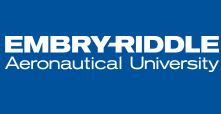
Volume
11
Issue
2
Abstract
Collegiate professional pilot training programs are designed to prepare the graduate for a variety of employment opportunities within the air transportation industry. An advantage of the collegiate format is the potential to foster intellectual and ethical growth as well as professional pilot skills. Advances in flight training technology and proven methods of flight instruction serve to effectively train a diverse student pilot population who attend university flight programs and civilian flight academies. Flight training programs traditionally focus on repetitive learning structures and psychomotor skill mastery. Despite the cognitive growth structures in place on a college campus, flight students may experience significant difficulty with the transition from simplistic general aviation training to more relativistic upper division work. In some cases, this stressful transition may be a byproduct of flight training schemes that unintentionally hinder cognitive development. Kolb's learning style model is one of many cognitive schemes that may provide insight to instructional initiatives to facilitate the cognitive growth of student pilots and enable graduate pilots to think in a more holistic manner.
Scholarly Commons Citation
Fanjoy, R. O.
(2000).
Collegiate Flight Training Programs: In Search of Cognitive Growth.
Journal of Aviation/Aerospace Education & Research, 11(2).
DOI: https://doi.org/10.15394/jaaer.2002.1296

